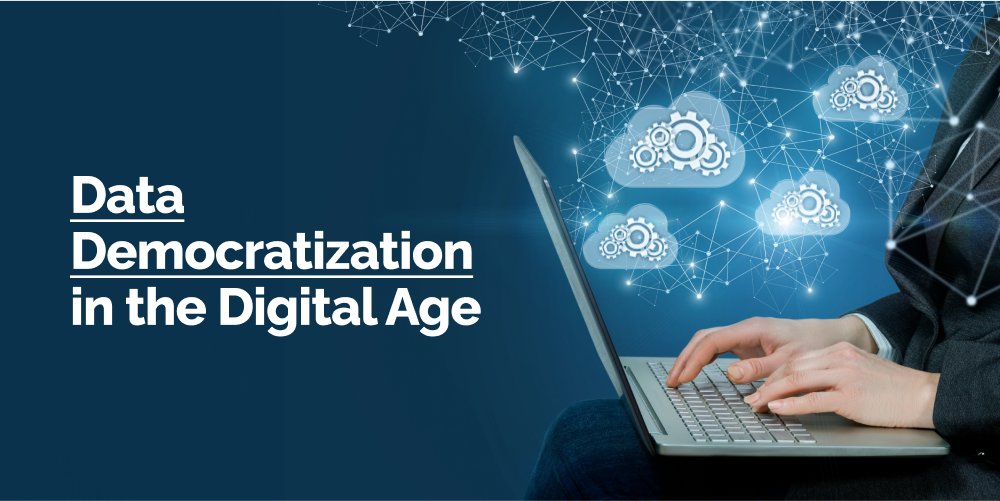Introduction: This article explores the challenges and opportunities of data democratization in the digital landscape, focusing on how different generations interact with and utilize data, and offers solutions.
Understanding Data Democratization
Data democratization refers to the process of making data accessible to non-specialist users within an organization. It aims to break down silos and empower employees at all levels to make data-driven decisions. This shift towards a more inclusive data culture is driven by several factors:
Technological Advancements: The proliferation of user-friendly data tools and platforms has made it easier for non-technical users to engage with data.
Competitive Advantage: Organizations recognize that leveraging data across all functions can lead to better decision-making and improved business outcomes.
Cultural Shift: There is a growing recognition of the importance of a data-driven culture that values evidence-based decision-making.
Generational Shift in the Workplace
Simultaneously, workplaces are experiencing a significant generational shift. Baby Boomers are retiring, and Millennials and Generation Z are becoming the predominant demographic. Each generation brings its own attitudes, skills, and expectations to the table:
Baby Boomers tend to value experience and are often more cautious about adopting new technologies.
Generation X members typically balance traditional work values with an openness to new technologies.
Millennials are digital natives who value collaboration and expect seamless technology integration.
Generation Z is characterized by their fluency in digital technologies and desire for instant access to information.
Challenges at the Intersection
Technological Proficiency: Different generations have varying levels of comfort and proficiency with digital tools. This disparity can create friction and hinder the effectiveness of data democratization efforts.
Cultural Resistance: Older employees might resist new data tools and processes, preferring traditional methods. This resistance can slow down the adoption of data democratization.
Training and Support: Providing adequate training and support to a diverse workforce can be challenging. Tailoring training programs to meet the needs of different generations requires careful planning and resources.
Data Literacy: Ensuring that all employees have a basic understanding of data and how to use it effectively is crucial. The level of data literacy can vary widely across generations, necessitating targeted educational initiatives.
Solutions to Bridge the Gap
Inclusive Training Programs: Develop training programs that cater to the learning styles and preferences of different generations. Use a mix of traditional training, e-learning modules, and hands-on workshops to accommodate everyone.
Mentorship and Peer Learning: Encourage cross-generational mentorship programs where tech-savvy younger employees can support older colleagues in learning new tools, and vice versa, where experienced employees can impart strategic insights.
User-Friendly Tools: Invest in intuitive and user-friendly data tools that reduce the learning curve and make it easier for employees of all generations to engage with data.
Cultivate a Data-Driven Culture: Foster a culture that values data-driven decision-making by celebrating successes and demonstrating the impact of data on business outcomes. Highlighting stories of how data has led to tangible improvements can motivate employees to embrace data democratization.
Ongoing Support: Establish continuous support systems, such as help desks, forums, and regular refresher courses, to assist employees as they navigate new data tools and processes.
Conclusion
Data democratization, coupled with a generational shift, presents both challenges and opportunities for organizations in the digital age. By understanding the unique needs and characteristics of different generations, organizations can implement strategies that foster a collaborative and inclusive data culture. With the right tools, training, and support, businesses can ensure that all employees are empowered to harness the power of data, driving innovation and success in the digital era.
FAQs on Data Democratization and Generational Shift
What is data democratization?
Data democratization is the process of making data accessible and usable for all employees within an organization, regardless of their technical expertise.
How does the generational shift impact data democratization?
The generational shift introduces varying levels of technological proficiency and attitudes towards data, which can affect how different age groups adopt and utilize data tools.
What are the main challenges of data democratization in a multi-generational workforce?
Key challenges include technological proficiency disparities, cultural resistance, the need for tailored training, and varying levels of data literacy across different generations.
What solutions can help bridge the generational gap in data democratization?
Solutions include inclusive training programs, cross-generational mentorship, investing in user-friendly tools, fostering a data-driven culture, and providing ongoing support.
Why is fostering a data-driven culture important?
A data-driven culture encourages evidence-based decision-making, leading to better business outcomes. It also motivates employees to engage with data, enhancing overall organizational performance.


